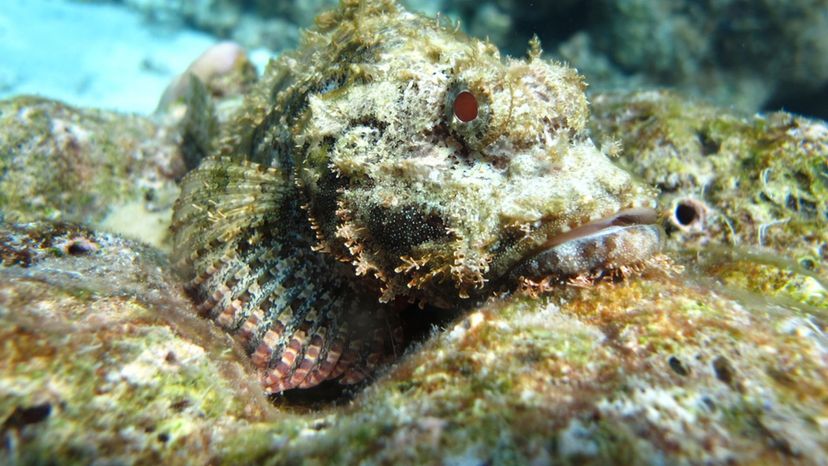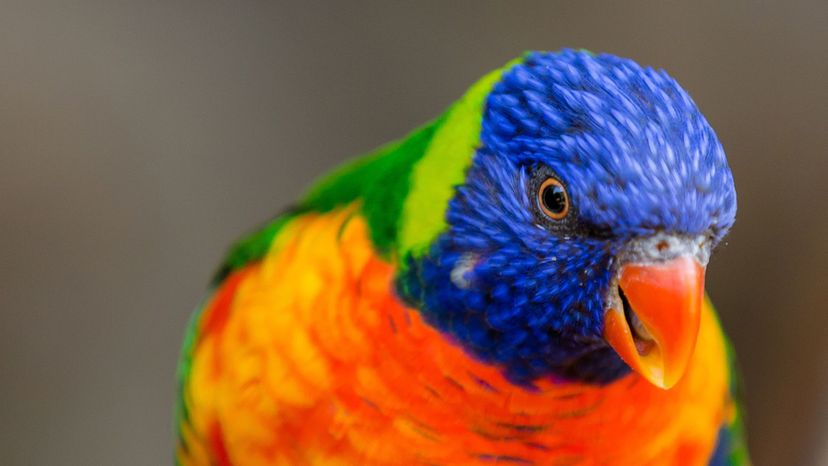
Image: Shutterstock
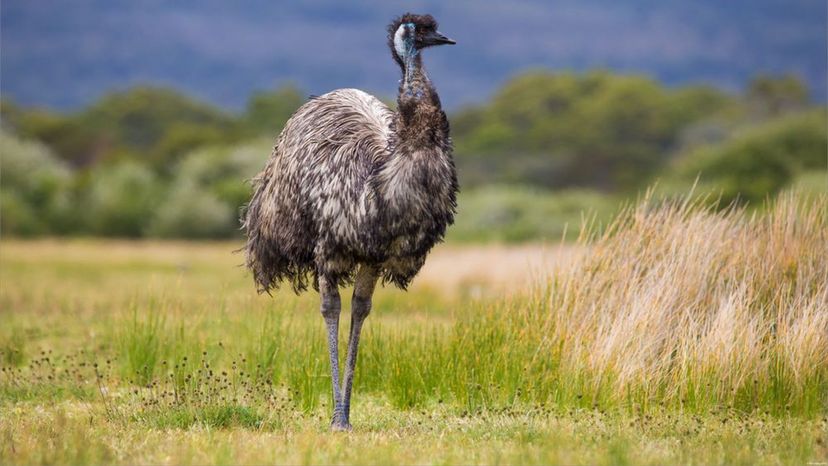
n/a
Which Australian animal is shown in this photo?
Black Swan
Flying Fox
Tree Kangaroo
Emu
Emus are the world's second largest birds after ostriches. Like ostriches, cassowary, rhea and kiwi, emus are also flightless.
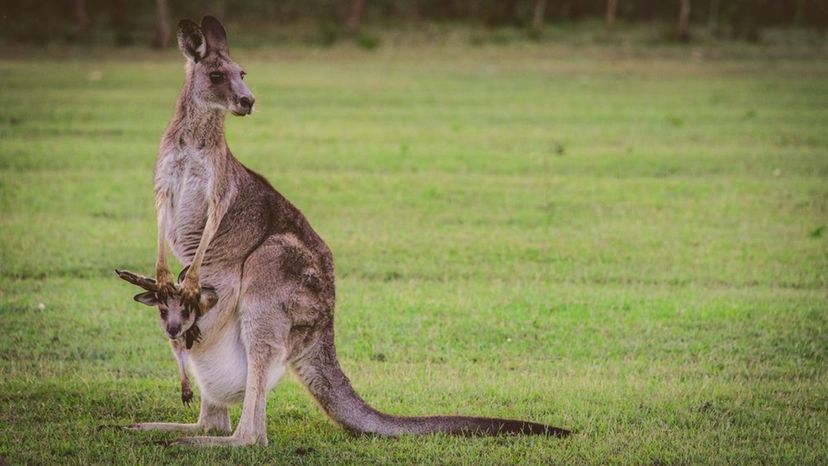
Shutterstock
Which Australian animal is shown in this photo?
Kookaburra
Kangaroo
Red kangaroos are one of the four kangaroo species. They can grow to heights of over 6 and a half feet and leap nearly 10 feet in the air!
Cockatoo
Sugar Glider
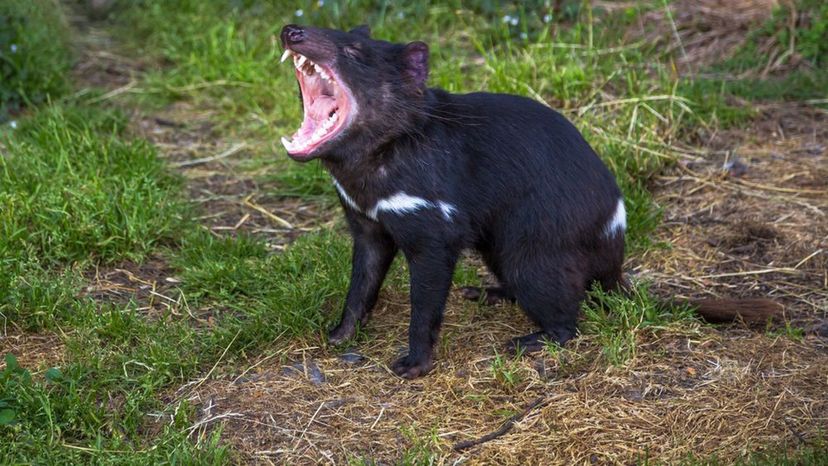
Shutterstock
Which Australian animal is shown in this photo?
Gouldian Finch
Cassowary
Tasmanian Devil
Tasmanian Devils are the largest carnivorous marsupials in the world. They eat insects, fish, birds and snakes, as well as carrion (decaying animal flesh).
Little Penguin
Advertisement
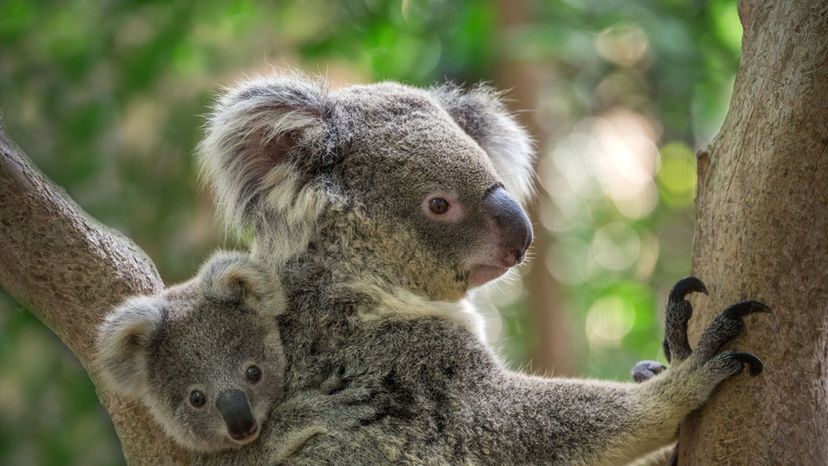
n/a
Which Australian animal is shown in this photo?
Dugong
Koala
In the Dharug Australian Aborigine language, the word "koala†means "no water†or "no drink.†Koalas don't drink much water as they get most of the water they need from the leaves they eat.
Redback Spider
Camel
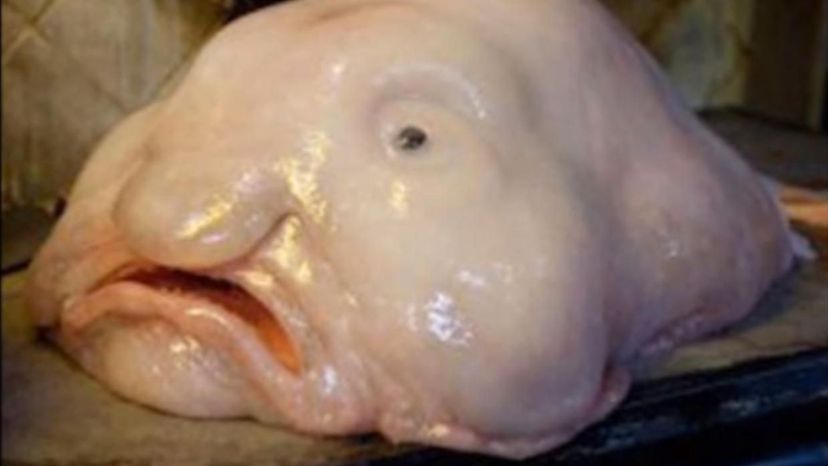
n/a
Which Australian animal is shown in this photo?
Blobfish
A blobfish feeds by sucking small crustaceans into its mouth as it moves along the ocean floor. Active hunting would be difficult for the blobfish as it has no bones, no teeth and very low muscle mass.
Blue-Tongued Lizard
Myna Bird
Australian Snapping Turtle
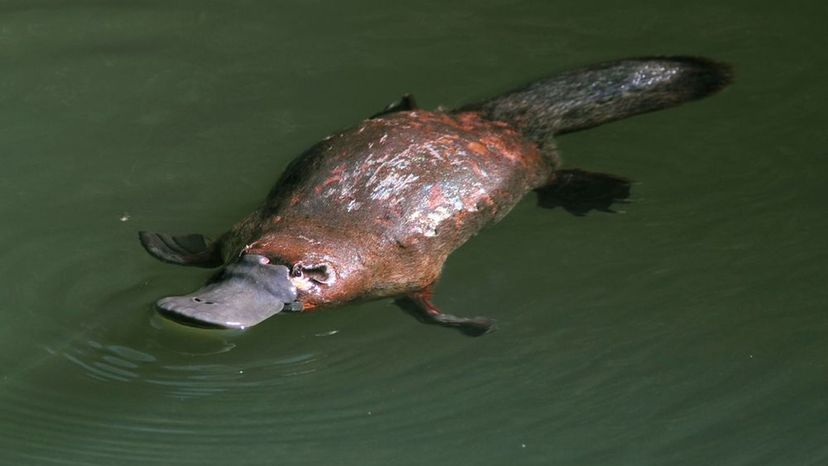
shutterstock
Which Australian animal is shown in this photo?
Plains Wanderer
Wombat
Platypus
The cells in a platypus's bill are sensitive to the electric fields generated by other living things. It uses this sensitivity as a means of electrolocation and relies on it when hunting.
Koala
Advertisement
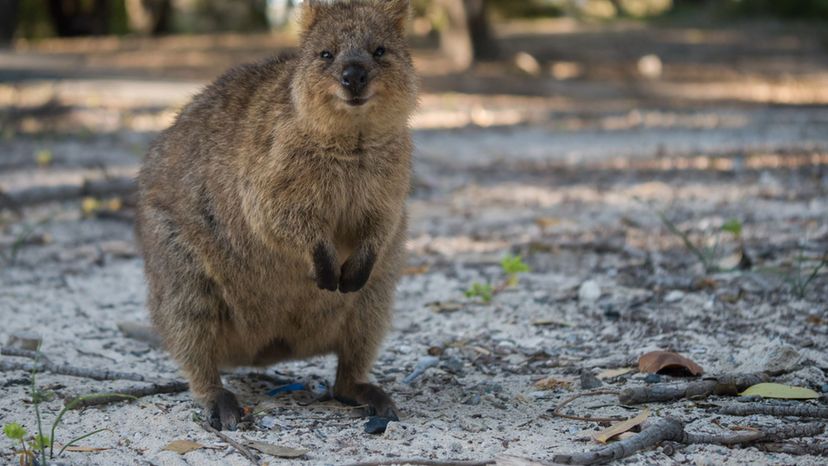
Shutterstock
Which Australian animal is shown in this photo?
Quokka
The Quokka is one of the smallest wallabies in Australia. It has a very sweet smile on its face and some VERY sharp claws on its feet.
Antechinus
Tasmanian Tiger
Lyrebird
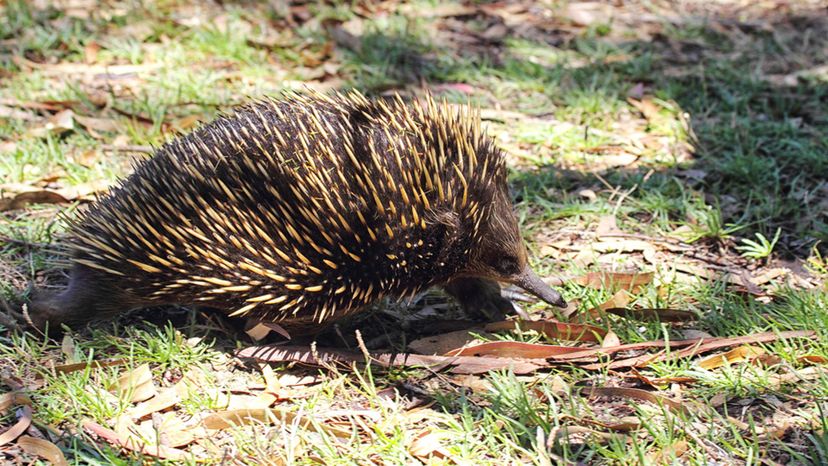
shutterstock
Which Australian animal is shown in this photo?
Australian Water Buffalo
Possum
Spotted Quoll
Echidna
Echidnas are one of the few mammal species to lay eggs. The eggs hatch after just 10 days. A baby echidna is known as a puggle.
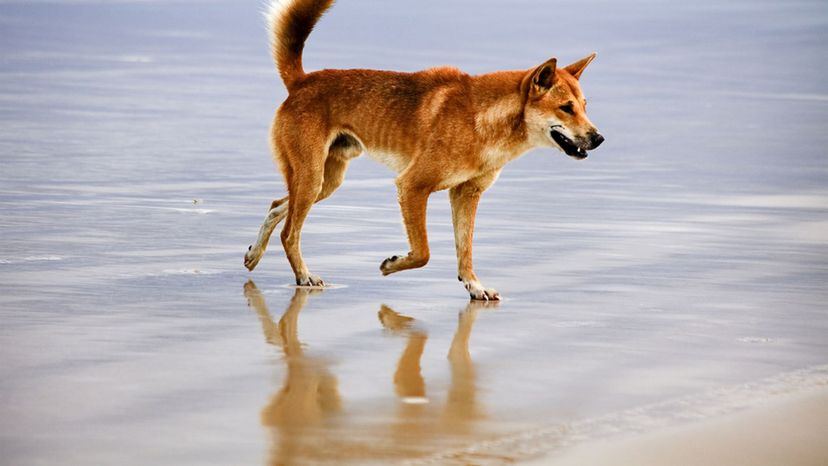
Shutterstock
Which Australian animal is shown in this photo?
Dingo
Often referred to as wild dogs, dingoes are a type of canine, but they are not dogs. Dingoes can turn their heads almost 180 degrees in each direction!
Red Fox
Numbat
Box Jellyfish
Advertisement
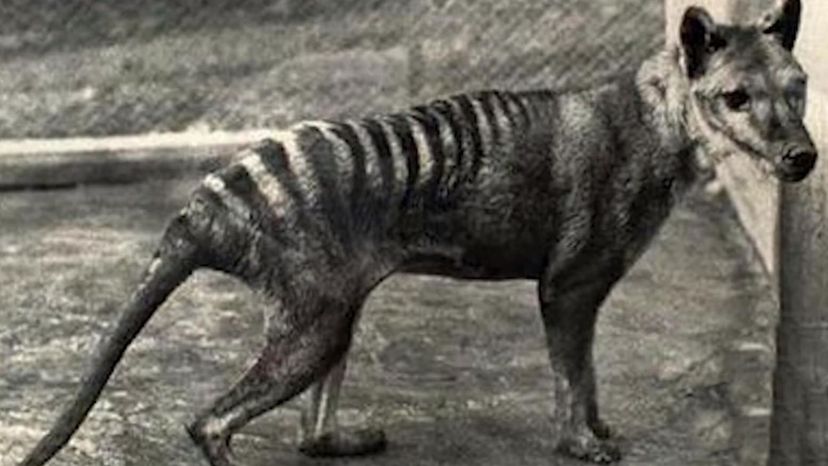
YouTube
Which Australian animal is shown in this photo?
Little Penguin
Clownfish
Tasmanian Tiger
The Tasmanian Tiger was once regarded as the largest carnivorous marsupial of modern times. It was, however, declared extinct in 1936. It is also called the Tasmanian Wolf.
Frilled Lizard
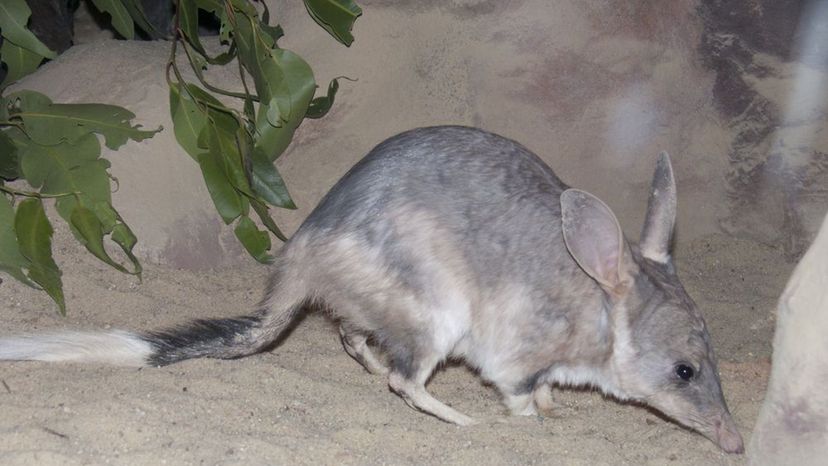
Shutterstock
Which Australian animal is shown in this photo?
Bilby
Bilbies are also called "rabbit-bandicoots.†They are desert-dwelling marsupial omnivores and are noted for having an extremely short gestation period - just 12 to 14 days.
Brumby
Spotted Quoll
Stone Fish
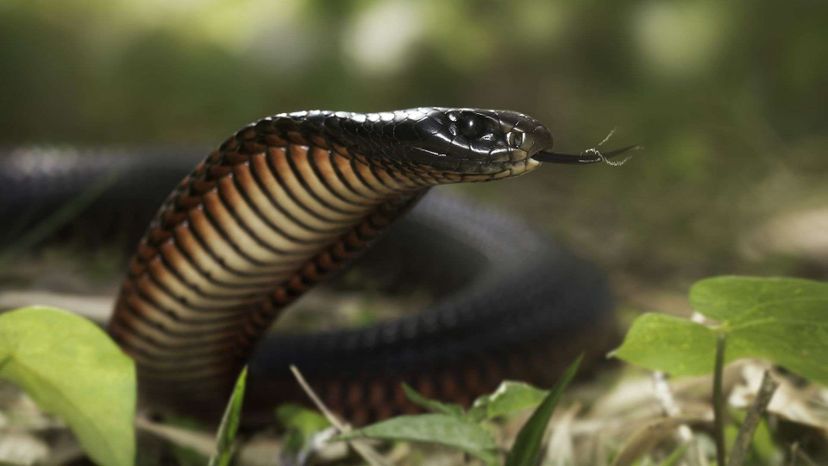
Shutterstock
Which Australian animal is shown in this photo?
Wallaby
Black Swan
Tree Kangaroo
Red-bellied Black Snake
The red-bellied black snake is extremely venomous and belongs to the same family as cobras. Although dangerous, it does not readily bite, but will ward off danger by raising it upper body off the ground, flattening its head and hissing.
Advertisement
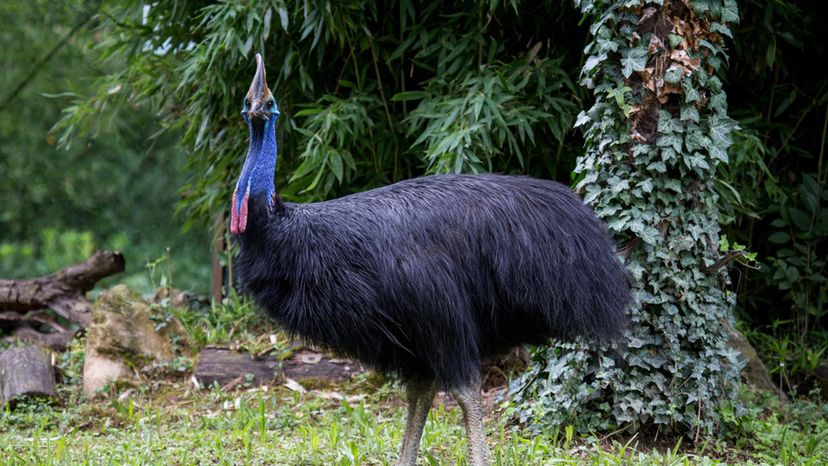
Shutterstock
Which Australian animal is shown in this photo?
Sugar Glider
Cassowary
The female cassowary is known to abandon her eggs shortly after laying them. The father then takes on the job of incubating the eggs for 50 days, then raising the young once they've hatched.
Lyrebird
Myna Bird
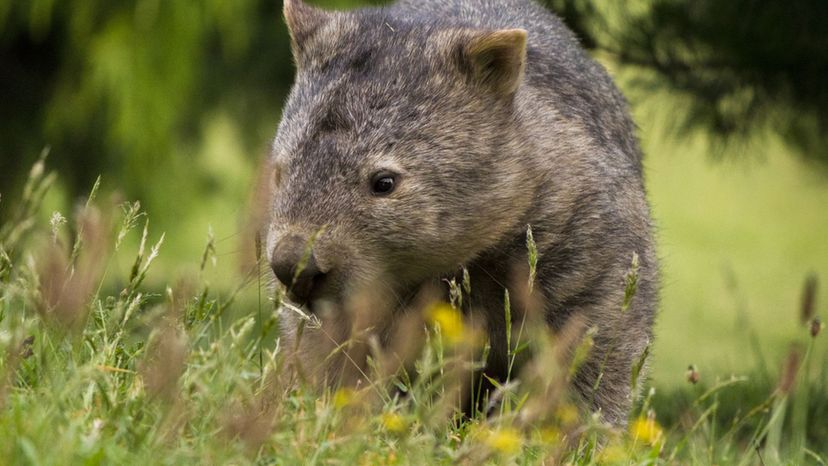
n/a
Which Australian animal is shown in this photo?
Wombat
Despite appearing chubby, wombats can run up to 25 miles per hour. By comparison, Usain Bolt was clocked going slightly faster - at just under 28 miles per hour!
Saltwater Crocodile
Australian Humpback Dolphin
Antechinus
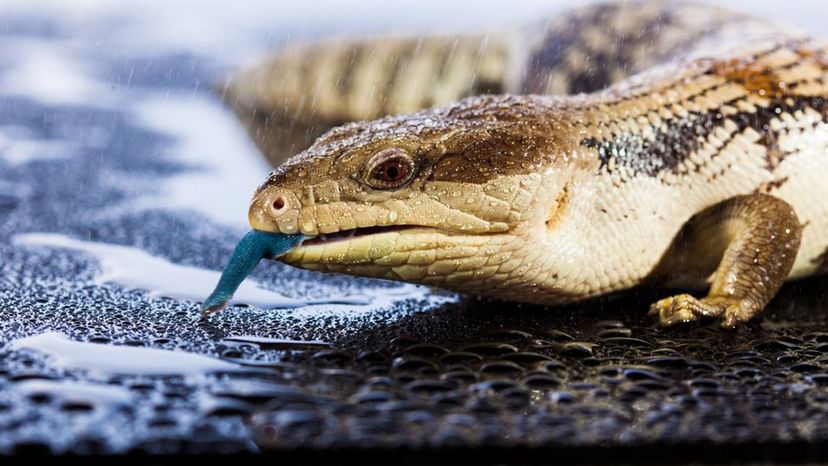
Shutterstock
Which Australian animal is shown in this photo?
Marsupial Mole
Blue-Tongued Lizard
During mating season, the male blue-tongued lizard will actively go out looking for a mate. Otherwise, these animals prefer to live alone for most of the year. Blue-tongued lizards are often kept as house pets.
Numbat
Gouldian Finch
Advertisement
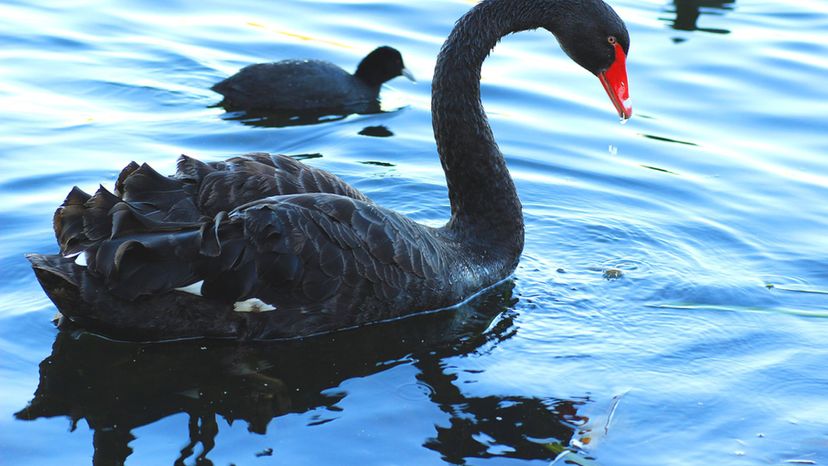
Shutterstock
Which Australian animal is shown in this photo?
Black Swan
Found throughout much of Australia, black swans can grow to be almost 5 feet tall. They have a wing span of up to 6 and a half feet.
Blue-tongued lizard
Bandicoot
Redback Spider
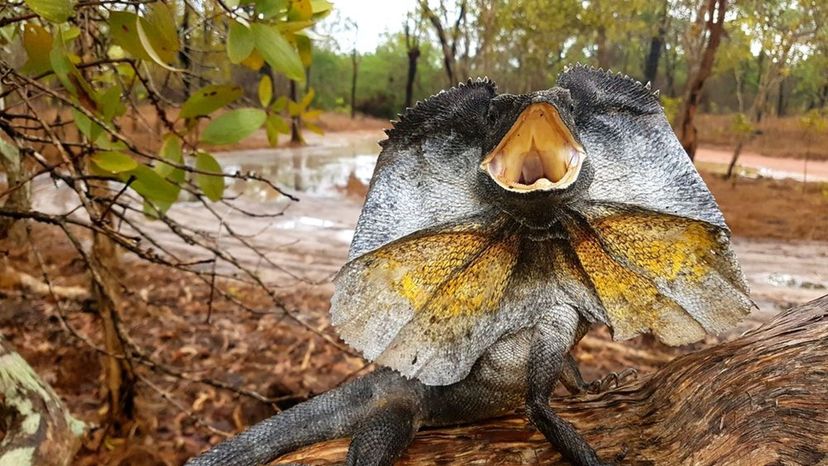
Shutterstock
Which Australian animal is shown in this photo?
Clownfish
Frilled Lizard
Due to its habit of running on its hind legs when it is scared, the frilled lizard is often called the bicycle lizard. The "frill†is a loose flap of skin the lizard opens up around its head when it feels threatened.
Australian Water Buffalo
Flatback Sea Turtle
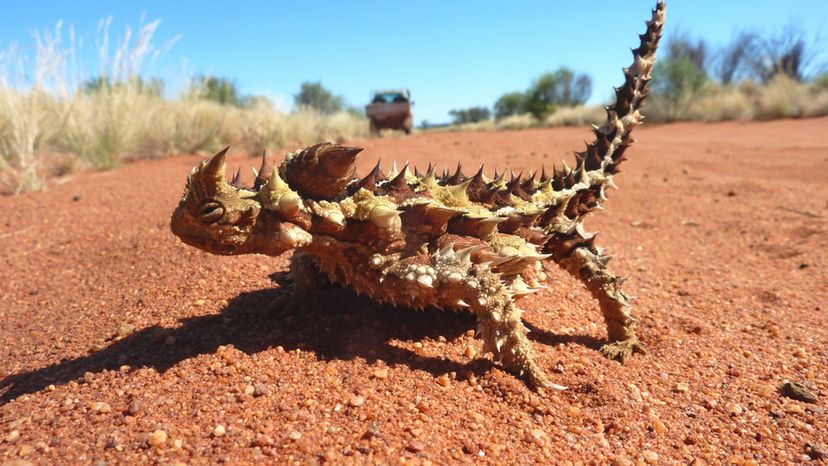
Shutterstock
Which Australian animal is shown in this photo?
Goanna
Camel
Box Jellyfish
Thorny Devil
This spiky lizard is sometimes called a "Thorny Dragon†or a "Mountain Devil." Thorny devils can change color from being yellow or red in warm weather to darker shades in cold weather or when they are alarmed.
Advertisement

Shutterstock
Which Australian animal is shown in this photo?
Dingo
Red Fox
Sugar Glider
Sugar Gliders are nocturnal marsupials. They are arboreal (live in trees) and are omnivores. They can glide through the air in the same way a flying squirrel does.
Red-Bellied Black Snake
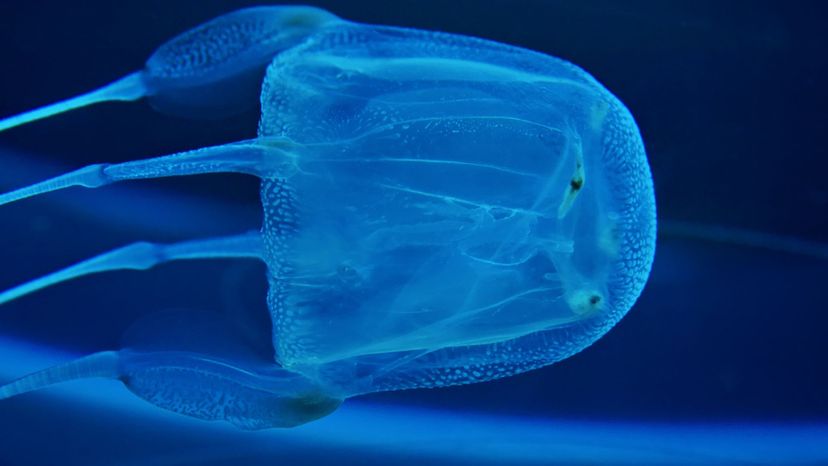
Shutterstock
Which Australian animal is shown in this photo?
Lyrebird
Cockatoo
Tasmanian Tiger
Box Jellyfish
Box jellyfish have 24 eyes in six groups of four - all facing inwards. The venom of the box jellyfish is considered to be among the deadliest in the world.
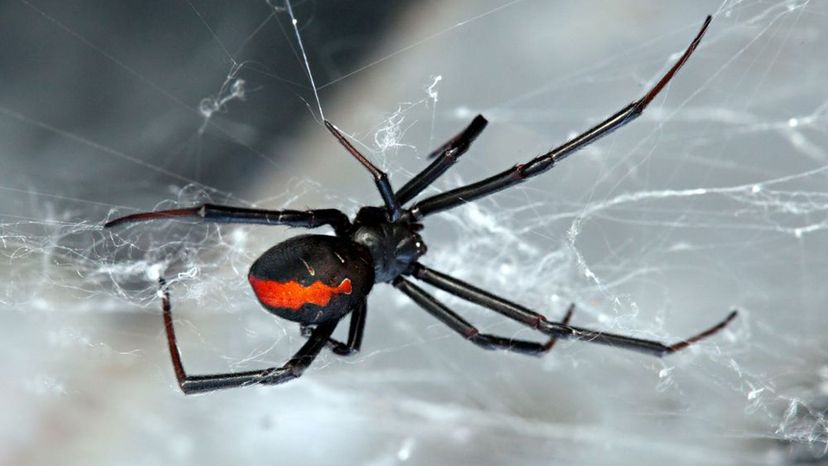
n/a
Which Australian animal is shown in this photo?
Bandicoot
Clownfish
Redback Spider
These venomous spiders tend to reside in or close to human residences. It is believed they do this as a way to get both warmth and shelter. They make very sticky webs and feed on a diet of mostly small insects.
Stone Fish
Advertisement
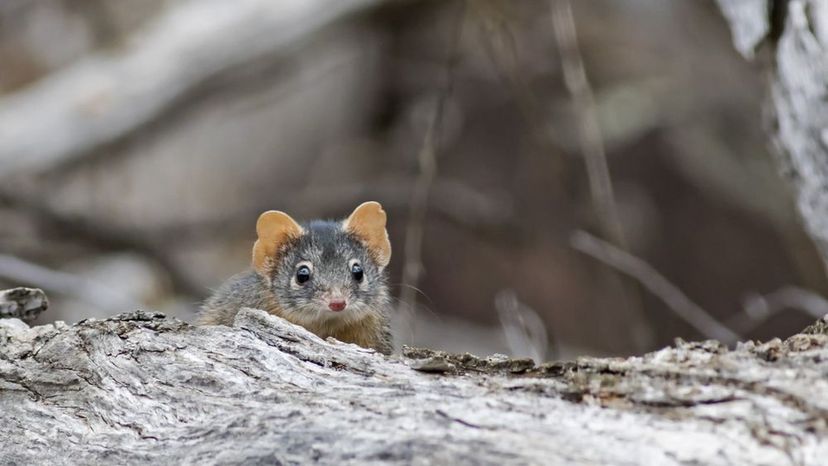
Shutterstock
Which Australian animal is shown in this photo?
Red-Eyed Tree Frog
Antechinus
The male antechinus in noted for mating to the point of death. As a result, they do not live past their first mating season. Also, many female Antechinus do not survive past having their first litter.
Flying Fox
Flatback Sea Turtle
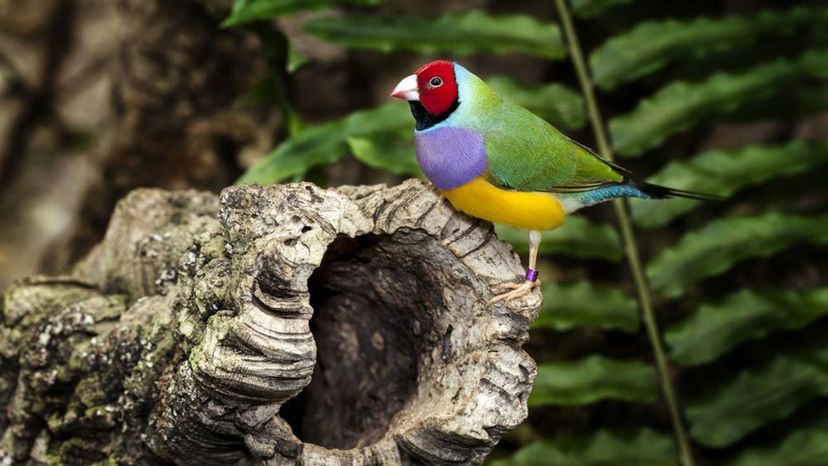
Shutterstock
Which Australian animal is shown in this photo?
Australian Snapping Turtle
Marsupial Mole
Gouldian Finch
Also called Lady Gouldian finch and rainbow finch, these birds have black, green, red and yellow markings. The males have purple chests and the females have chests of light-mauve.
Australian Humpback Dolphin
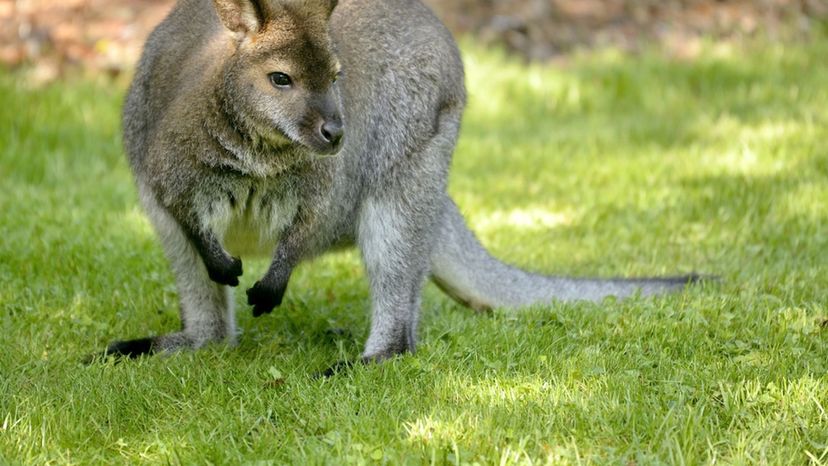
Shutterstock
Which Australian animal is shown in this photo?
Wallaby
These herbivores can grow up to 6 feet long - head to tail. When threatened, wallabies use their legs to deliver powerful blows to their opponents.
Echidna
Echidna
Spotted Quoll
Advertisement
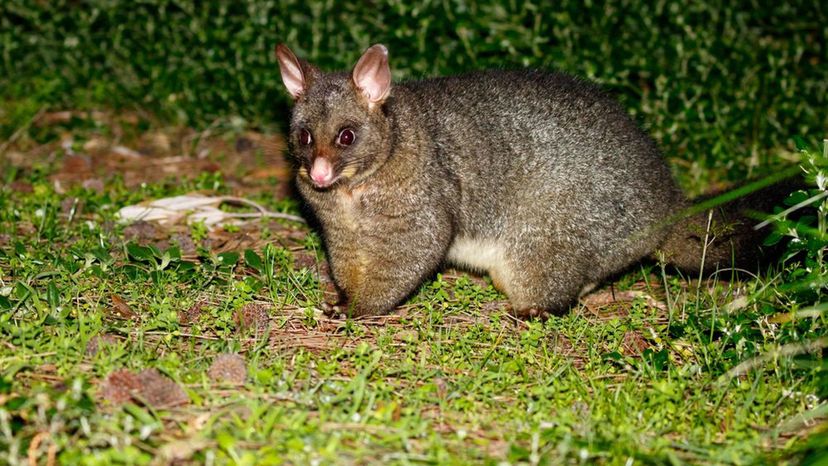
Shutterstock
Which Australian animal is shown in this photo?
Platypus
Camel
Tasmanian Tiger
Possum
Possums are a type of marsupial found in Australia, New Guinea, Sulawesi and New Zealand. Opossums, on the other hand, are also marsupials but are found in the Americas.
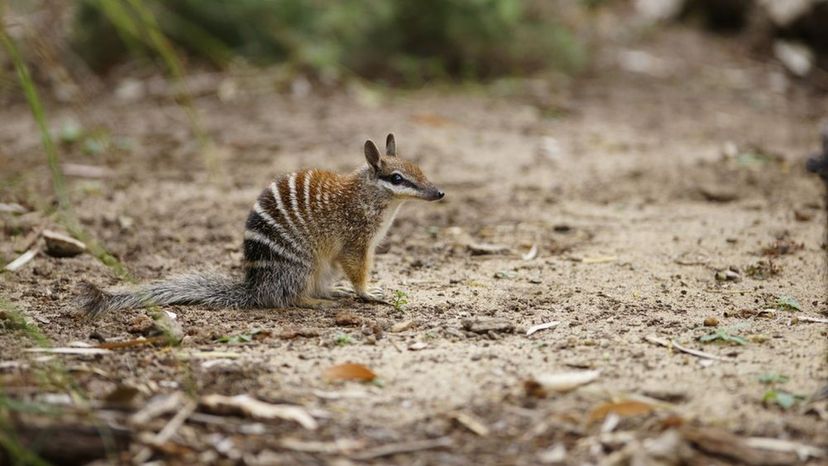
Shutterstock
Which Australian animal is shown in this photo?
Goanna
Numbat
A numbat is one type of marsupial in which the female does not have a pouch. Instead, the newly-born numbat babies only have their mother's long hair for protection.
Emu
Cockatoo
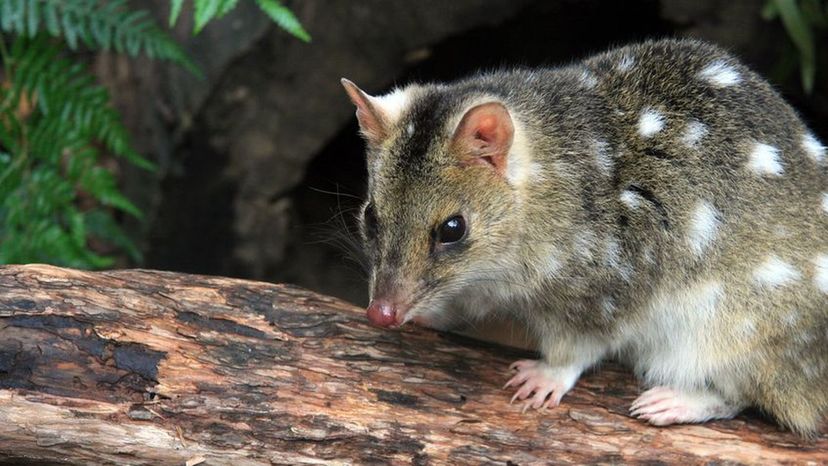
Shutterstock
Which Australian animal is shown in this photo?
Blue-Tongued Lizard
Spotted Quoll
This marsupial is also called "tiger quoll†and "tiger cat.†It was one of the first animals that Europeans encountered upon their arrival in Australia.
Plains Wanderer
Quokka
Advertisement
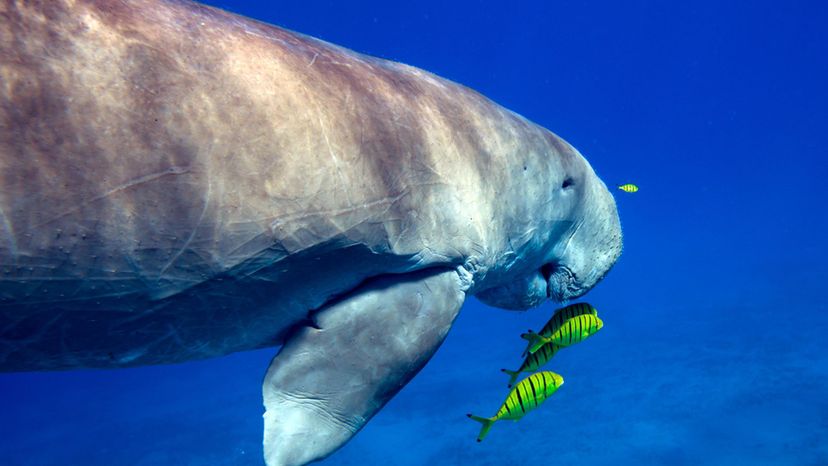
Shutterstock
Which Australian animal is shown in this photo?
Dugong
Dugong are closely related to manatees as is shown in both their behavior and appearance. Not so obvious, however, is the fact that both the dugong and manatee are related to the elephant.
Bandicoot
Koala
Redback Spider
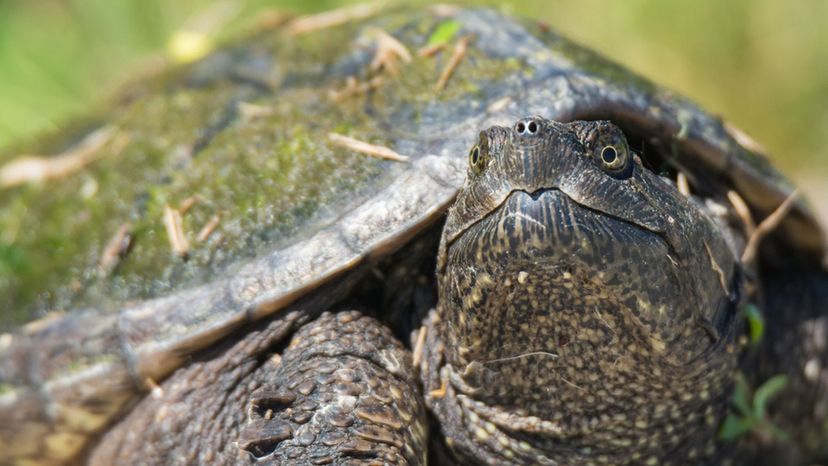
Shutterstock
Which Australian animal is shown in this photo?
Tree Kangaroo
Red-Bellied Black Snake
Gouldian Finch
Australian Snapping Turtle
Australian snapping turtle are a type of large side-necked turtle. They pull their head into their shells by turning it to the side instead of simply pulling it straight inwards as most other turtles do.
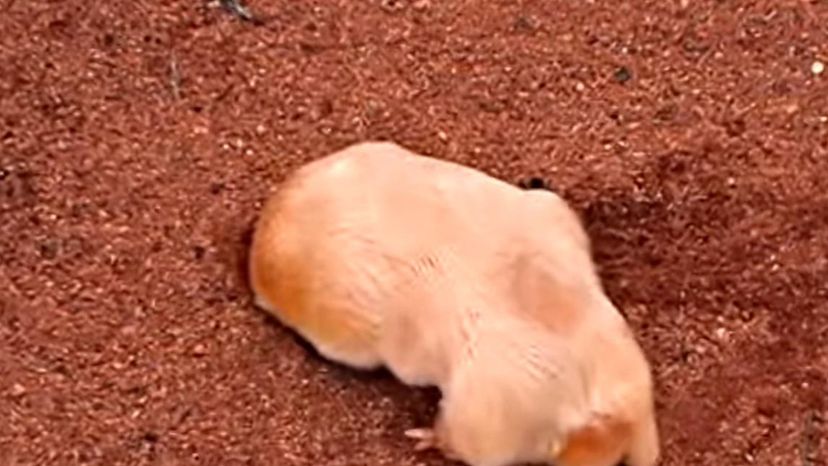
YouTube
Which Australian animal is shown in this photo?
Tasmanian Devil
Marsupial Mole
Marsupial moles live in the deserts of Australia. They are covered in golden fur and are both earless and blind. They spend most of their time underground.
Saltwater Crocodile
Emu
Advertisement
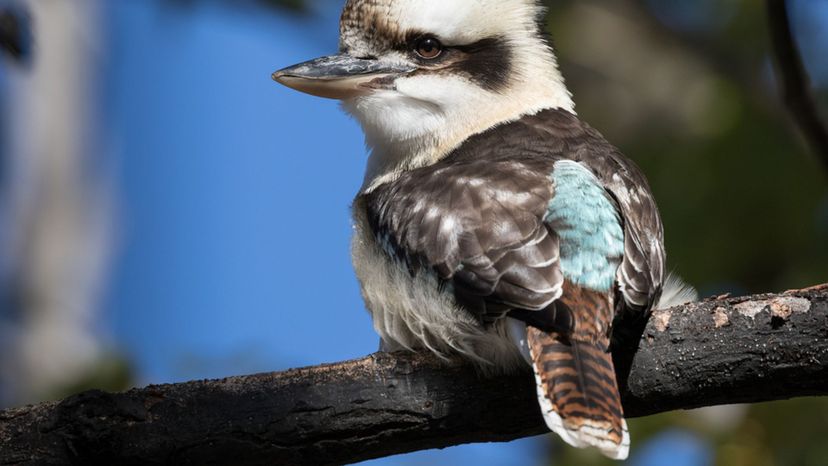
Shutterstock
Which Australian animal is shown in this photo?
Quokka
Wallaby
Kookaburra
Kookaburras are a type of kingfisher birds. One type, the popular laughing kookaburra, makes a sound resembling the echo of human laughter.
Brumby
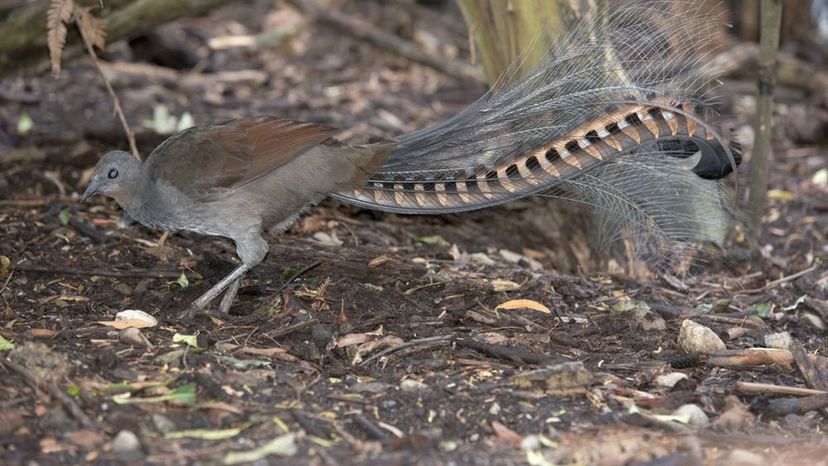
Shutterstock
Which Australian animal is shown in this photo?
Lyrebird
The lyrebird can mimic both natural and artificial sounds in its surroundings, including other birds, chainsaws and car alarms. Male lyrebirds have a huge tail which is fanned out like a peacock's during courtship.
Kangaroo
Cassowary
Flying Fox
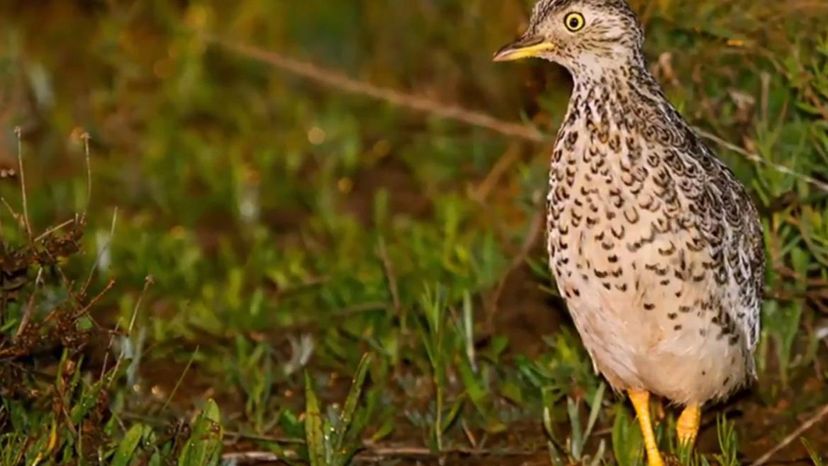
YouTube
Which Australian animal is shown in this photo?
Red-Bellied Black Snake
Plains Wanderer
Plains Wanderers prefer running to flying and so they are easy prey for foxes to catch. That, along with loss of their habitat to farmland, has driven the plains wanderer to near extinction.
Stone Fish
Blobfish
Advertisement
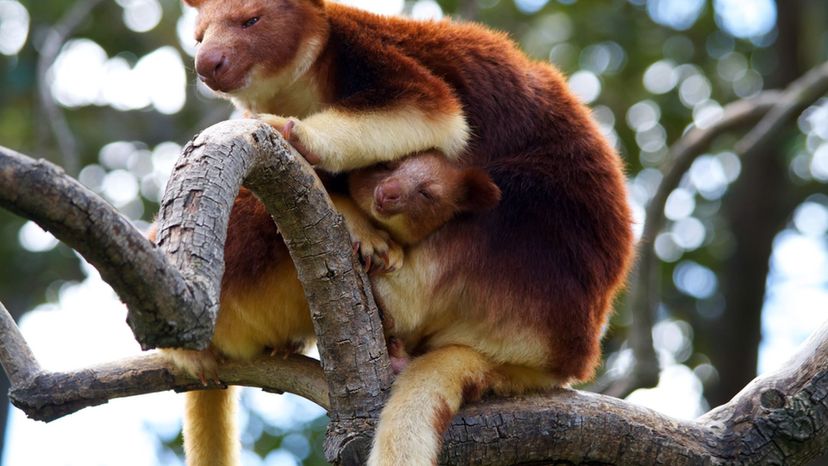
Shutterstock
Which Australian animal is shown in this photo?
Red Fox
Dingo
Tree Kangaroo
Fourteen tree kangaroo species can be found in the forests of Australia, Indonesia and Papua New Guinea. Tree kangaroos are considered to be "threatened†because of hunting and loss of habitat.
Thorny Devil
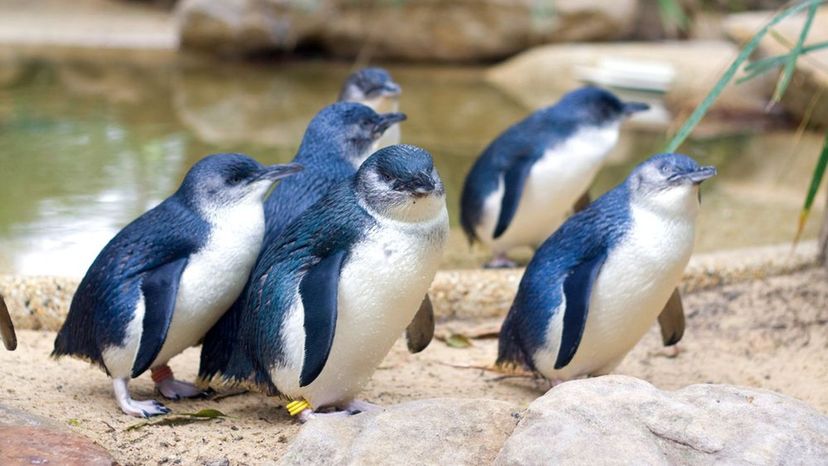
Shutterstock
Which Australian animal is shown in this photo?
Little Penguin
The little penguin is also known as fairy penguin and little blue penguin. They are the smallest species of penguin in the world.
Numbat
Bilby
Australian Water Buffalo
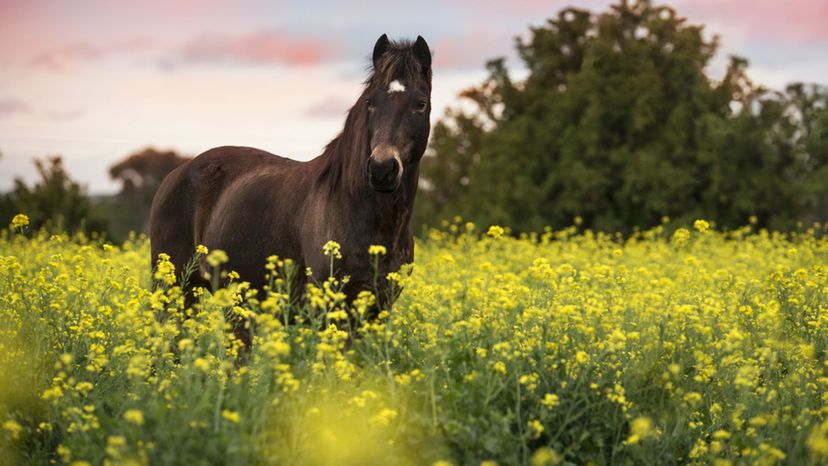
Shutterstock
Which Australian animal is shown in this photo?
Frilled Lizard
Koala
Brumby
The brumby is not a specific breed of horse. They are wild, free-roaming descendants of thoroughbred, Arabian, draft and Clydesdale horses, among others.
Possum
Advertisement
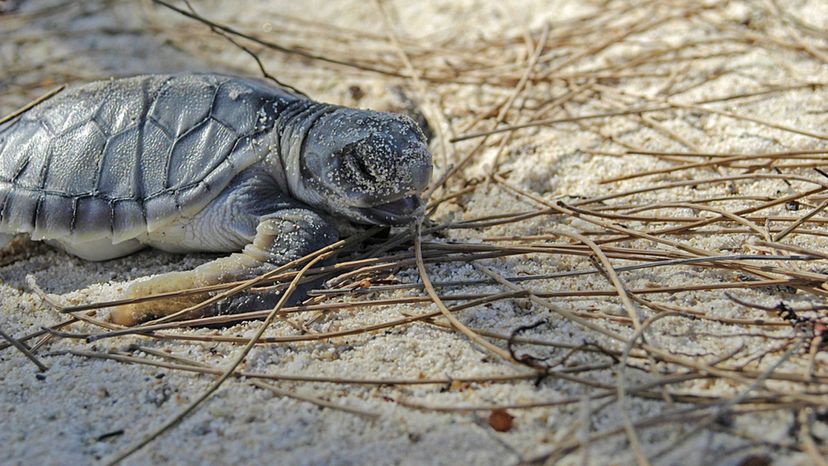
Shutterstock
Which Australian animal is shown in this photo?
Wombat
Myna Bird
Kookaburra
Flatback Sea Turtle
Like other sea turtles, the flatback is unable to pull its head into its shell. They are omnivores and can reach weights of up to 200 pounds.
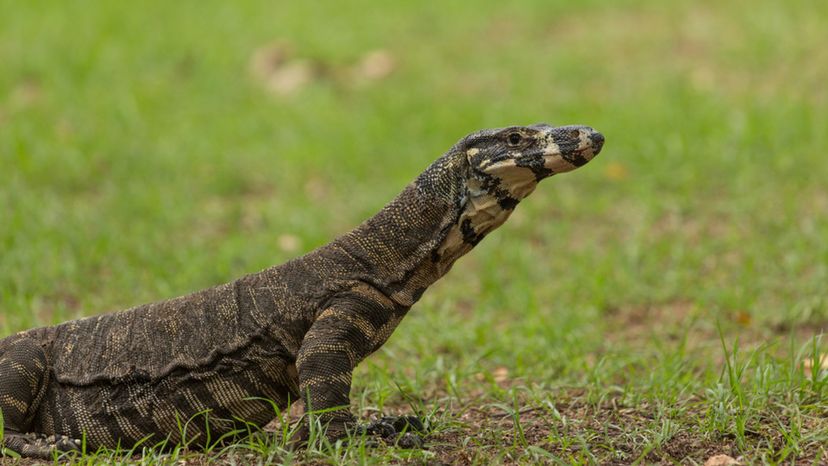
Shutterstock
Which Australian animal is shown in this photo?
Box Jellyfish
Goanna
The goanna are a type of monitor lizard (large lizard). Their name comes from the fact that early European settlers thought they looked like iguanas.
Platypus
Blobfish
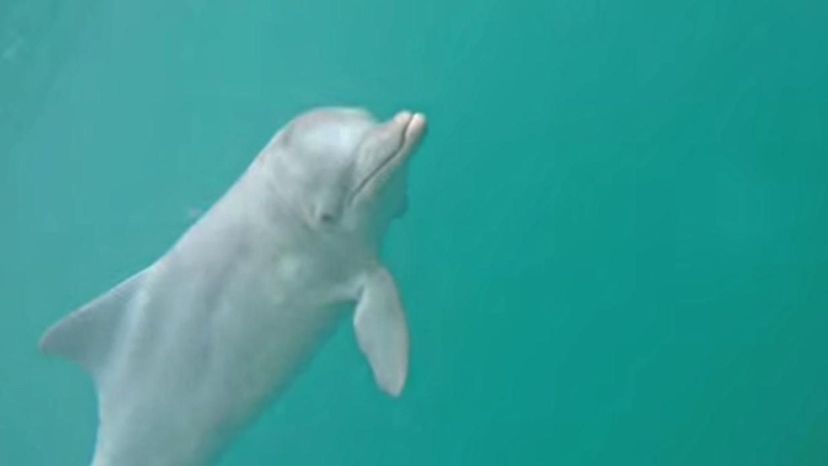
YouTube
Which Australian animal is shown in this photo?
Sugar Glider
Tasmanian Devil
Dugong
Australian Humpback Dolphin
Scientifically identified in 2014, the Australian humpback dolphin is one of only four species of humpback dolphins in the world. They live in groups of up to 31 members but on average, the Australian humpback dolphin group has only two or three members.
Advertisement
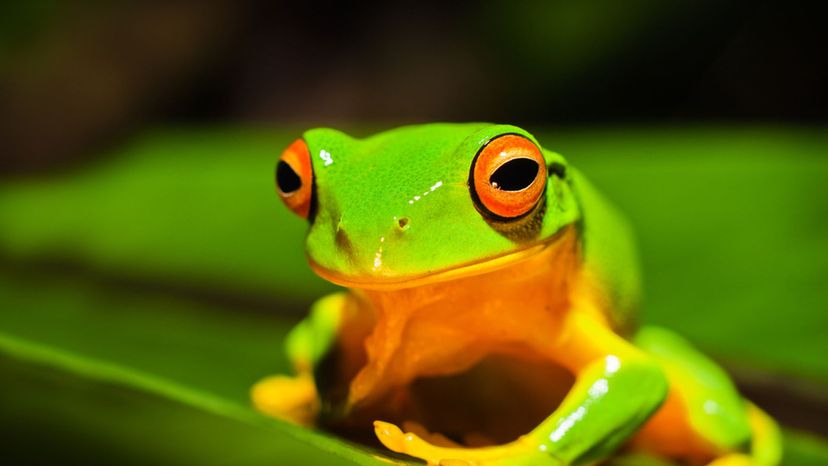
n/a
Which Australian animal is shown in this photo?
Echidna
Red-Eyed Tree Frog
Red-eyed tree frogs are nocturnal and are related to the more often seen green tree frog. Although they breed in ground pools, the red-eyed tree frogs spend most of the rest of their lives among foliage in trees.
Kangaroo
Antechinus
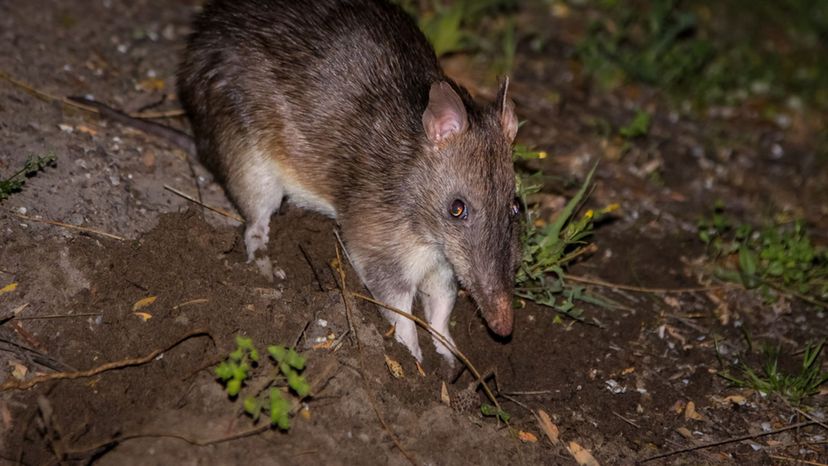
Shutterstock
Which Australian animal is shown in this photo?
Bandicoot
Bandicoots are omnivorous marsupials. They are often thought to be rodents because they look so much like large rats. Bandicoots are, in fact, related to rabbits.
Wombat
Little Penguin
Possum
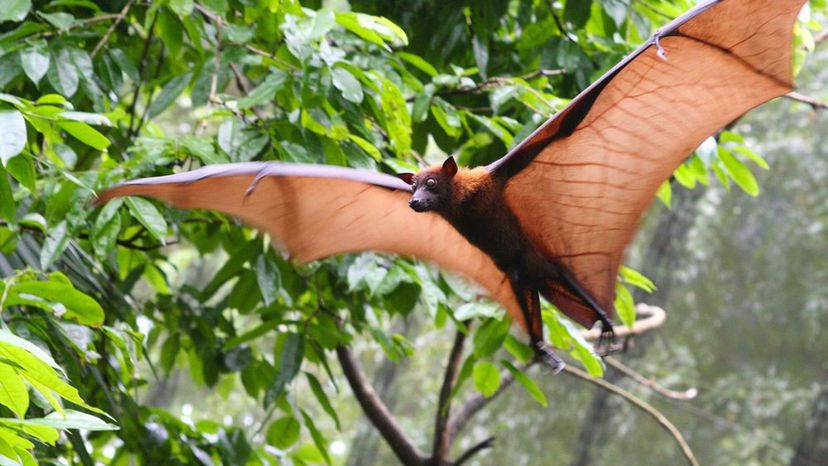
Shutterstock
Which Australian animal is shown in this photo?
Australian Snapping Turtle
Black Swan
Flying Fox
Flying foxes are actually large bats that are different from smaller bats in one very distinct way - they do not use echolocation to catch prey. Instead, they use their well-developed senses of sight and smell.
Tasmanian Devil
Advertisement
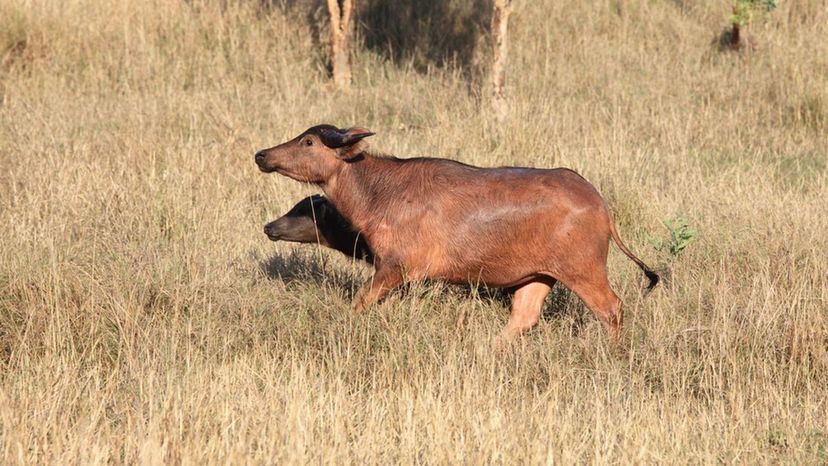
Shutterstock
Which Australian animal is shown in this photo?
Bilby
Australian Water Buffalo
The Australian Water Buffalo are not native to the country but were first brought there from Indonesia in the 1800s. They have since become wild in some parts of northern Australia.
Frilled Lizard
Plains Wanderer
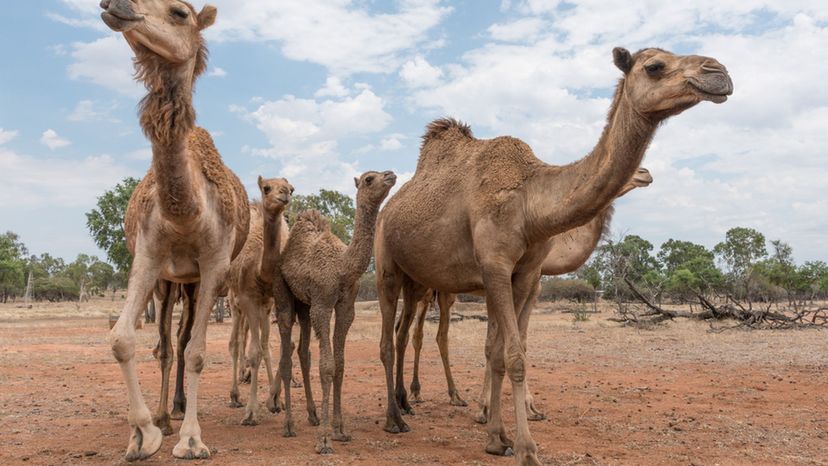
Shutterstock
Which Australian animal is shown in this photo?
Dugong
Echidna
Camel
Camel are not native to Australia - the first camel was brought there in 1840. Australia is now reported to have the largest wild camel herd in the world.
Australian Humpback Dolphin
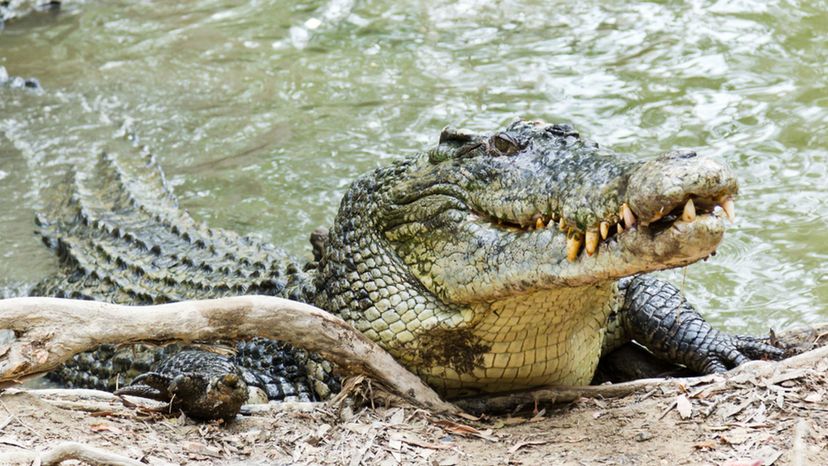
n/a
Which Australian animal is shown in this photo?
Blobfish
Flatback Sea Turtle
Saltwater Crocodile
The female saltwater crocodile can have 40 to 90 eggs in her nest at once. Only about 1 percent of all saltwater crocodile hatchlings will make it to adulthood.
Cassowary
Advertisement
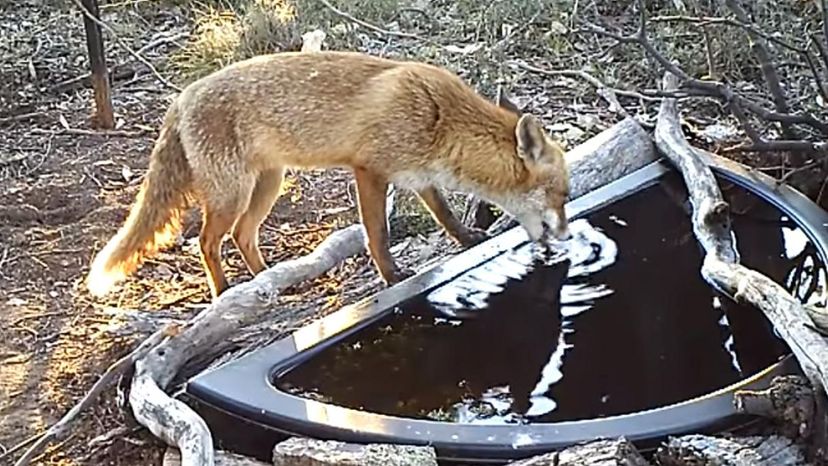
YouTube
Which Australian animal is shown in this photo?
Koala
Blue-Tongued Lizard
Kookaburra
Red Fox
The sport of fox hunting was the reason behind the introduction of foxes to Australia in 1855. Since then, they have contributed to the extinction of many native Australian animals.
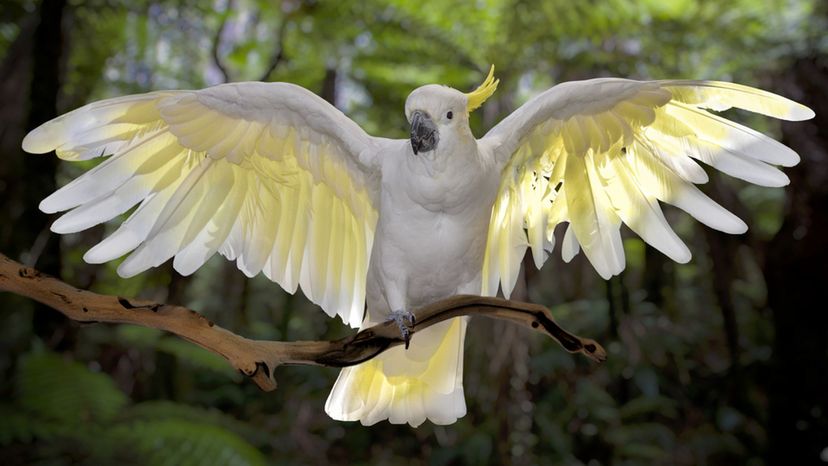
Shutterstock
Which Australian animal is shown in this photo?
Cockatoo
The cockatoo is actually a type of parrot and it can be trained to say a few words. While most cockatoos are white, they also come in pink or black.
Quokka
Dingo
Saltwater Crocodile
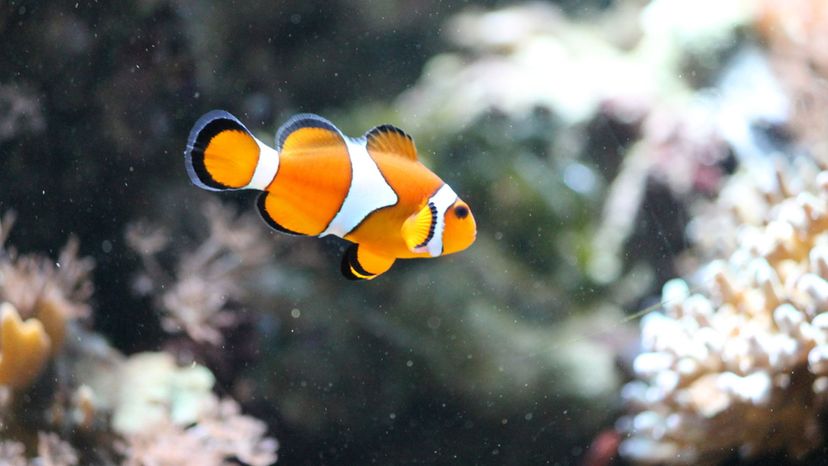
Shutterstock
Which Australian animal is shown in this photo?
Red-Eyed Tree Frog
Emu
Goanna
Clownfish
All clownfish start out as male. Within a group of clownfish, the most dominant male will morph into a female. If she dies, the next largest male becomes female - all others remain as male.
Advertisement
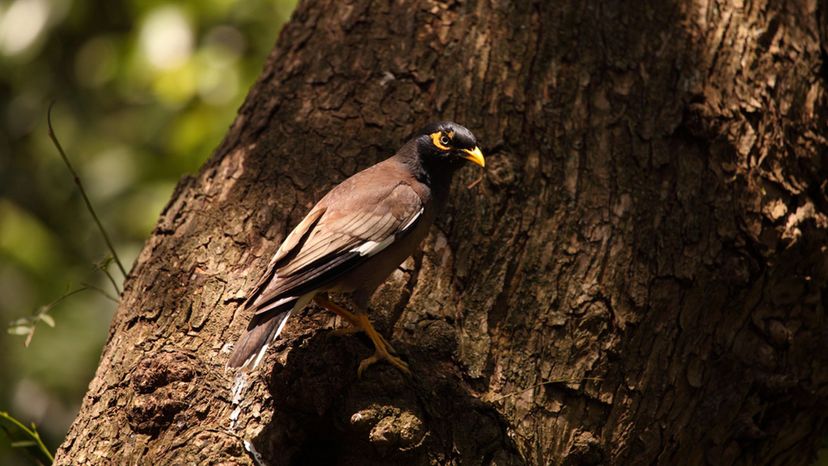
Shutterstock
Which Australian animal is shown in this photo?
Wallaby
Myna Bird
The first set of Myna birds were brought to Australia in 1863 as a means of pest control. Since then, however, they have gone on to be classified as invasive pests due to their negative effects on several native species, including the kookaburra, cockatoo and sugar glider.
Platypus
Brumby
You Got:
/50
Shutterstock
